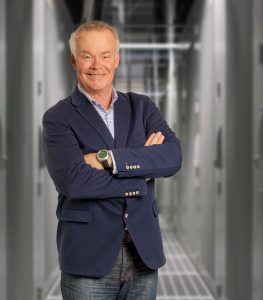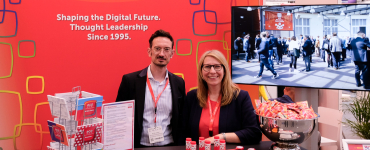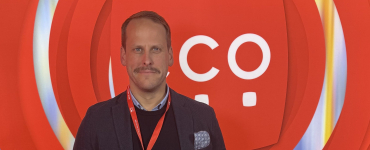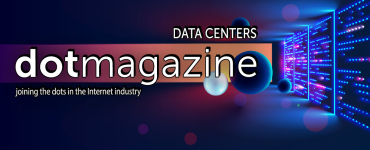In an eco member interview, Marc Fröse, Director Sales & Marketing at NorthC Deutschland GmbH, talks about the opportunities for sustainable resource management in data centres and the challenges facing the European digital economy in global competition.
Mr Fröse, would you please give us a brief introduction to your company, NorthC?
NorthC is a regional data centre operator based in Europe, which offers customised solutions for organisations, cloud and IT providers, institutions and public authorities. In addition to the principle of regional reference, NorthC also has a clear plan to implement a CO2-neutral platform by 2030, which is already in full swing.
Which digitalisation topics are particularly important to you?
In recent years, we have seen a very strong trend (not only) in the Federal Republic of Germany towards migrating applications and services to the various cloud landscapes. However, a large number of applications cannot be fully virtualised and still require secure, highly available and optimally connected data centres in order to keep up with the pace of digitalisation while maintaining proven technologies. Furthermore, in the past, there has been a level of dormancy in the European economy regarding new technologies and offerings in the environment of digitalisation, which has led to these offerings being completely shifted to providers from Asia and the USA. This trend should be urgently reversed by the European digital economy, and NorthC will be happy to be a building block in this construct.
What are the special challenges of your industry at the moment and how are you working on them?
In addition to the above-mentioned points, it must also be said that our industry in particular is being driven by the challenges of climate change and energy supply to make clever and sustainable use of resources, which on the other hand also produces very positive effects, such as opportunities and new technologies, which in turn leads to new products and fields of activity. In this sector in particular, many market competitors talk about sustainability and renewable energies, whereas NorthC already has trend-setting technology shifts in place (including the use of hydrogen as an energy storage medium) and is actively advancing these. The integration of solar and wind energy are also firmly anchored DNA components at NorthC, as is the sensible utilisation of waste heat in the construction of new sites planned in DE and CH in the coming years.
How do you expect your membership in the eco Association to support you in this regard?
Through many years of experience in working with the eco Association in various roles and organisations, I have always perceived this community as the best interest group for the digital economy, where the upcoming challenges are intensively discussed and approaches to solutions are advanced. Beyond that, we also appreciate its platform for news and trends to get and maintain a very good overview of the market and its framework conditions. Unfortunately, it must be said that the political framework often doesn’t sufficiently reflect the necessities in the digital environment, but rather acts as an obstacle to the European digital economy. Therefore, an association like eco also offers a powerful voice to be listened to more in politics, so the connections are also better understood in Berlin and Brussels.
What opportunities does digitalisation offer us in the future?
In the recent media coverage of ChatGPT, we’ve witnessed how the field of artificial intelligence in particular can bring change and facilitation in many areas of life; this is not necessarily just associated with job losses, as feared, but can rather offer a (partial) solution to the shortage of skilled workers. I am convinced that extensive use and targeted analysis of BigData has some similar “surprises” in store for us. In addition, emerging technologies such as autonomous driving and IoT-enabled devices – which require shorter latencies and thus require a move away from a centralised data structure and the availability of data in the field: this is one of NorthC’s motivations for expanding data centre space in Tier2/Tier3 cities in Europe.
Mr Fröse, thank you very much for the interview!
With almost 30 years of experience in IT services, outsourcing and data centre services in various multinational organisations, Marc Fröse has gained quite a comprehensive overview of the issues and requirements in these areas. For several years, Mr Fröse has been advising international companies on how best to implement their digital project requirements, both in solution selling and from a helicopter perspective. In the NorthC Deutschland GmbH team, Mr Fröse manages activities in both sales and marketing for customers and partners alike.




